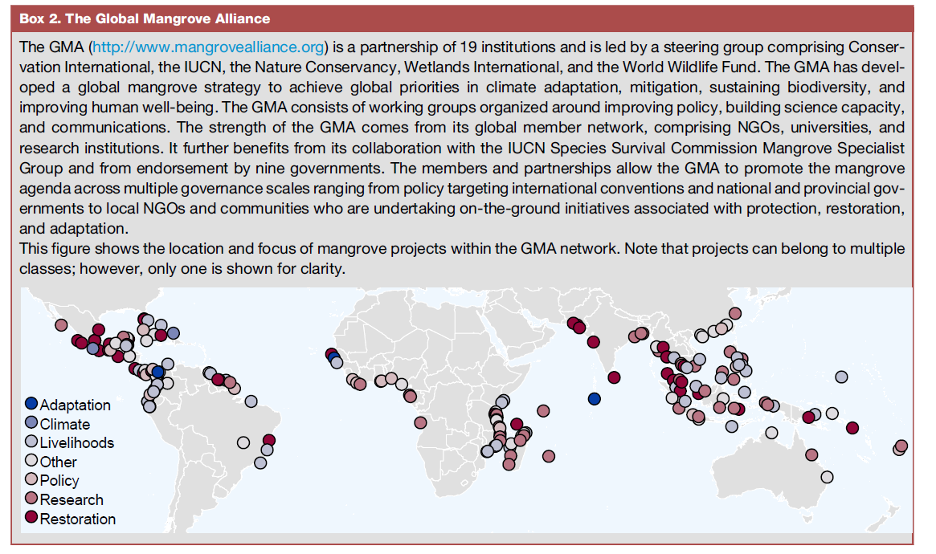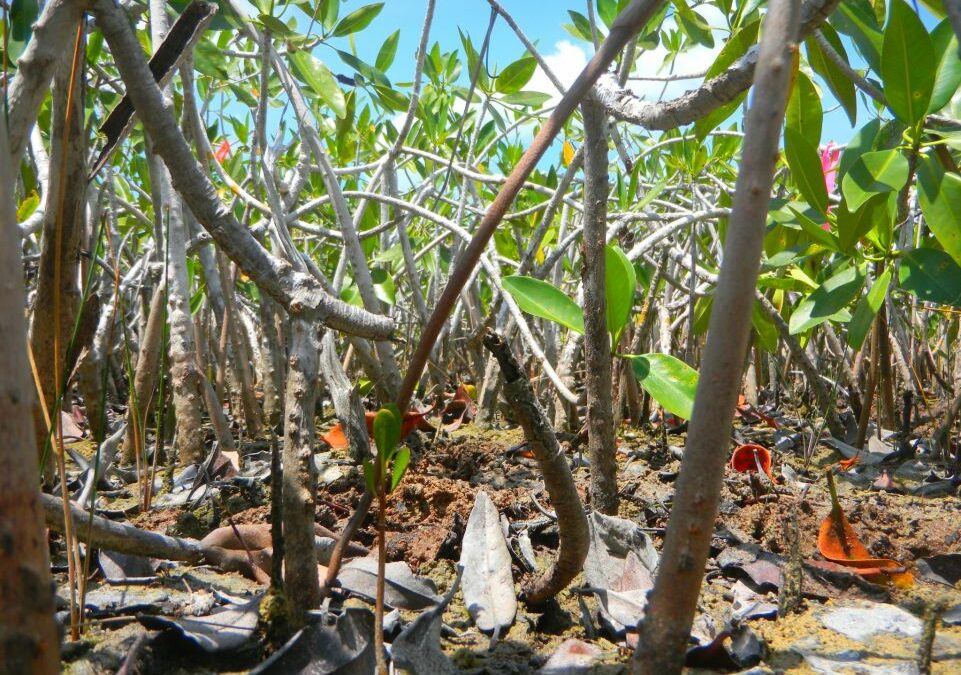As the situation with COVID-19 is showing us, science and data are most useful when they are made accessible and available to those who need and use them. This is just as true for global conservation efforts in this era of big data. Recently, an international team of coastal specialists, including ECU scientists David Lagomasino and Siddharth Narayan, published a perspective on harnessing global big data to support and inform policy and action for mangrove conservation. Led by Dr. Worthington at the University of Cambridge, the team identifies the challenges in accessing and using global datasets in an era when data availability can be a challenge.
Narayan explains, “Effective conservation needs data, and data needs interpretation. In this perspective, our team lays out the top challenges for scientists and data developers to consider when creating new datasets to inform global conservation action for mangroves.”
The conservation of mangroves is of great importance as they are one of the Earth’s most productive ecosystems, support an abundance of diverse species, and provide a variety of ecosystem services for humans. The international team members pulled together their expertise to complete the study which was recently published in the science journal One Earth. Their methods of studying mangroves range from using satellite remote sensing to measure mangrove forest extents and structure, to combining datasets and models for quantifying the economic benefits of mangroves for ecosystem services such as coastal protection.

[Figure from linked paper.]
“Satellites can provide snapshots of our coasts all around the world. Now with better access to satellite images researchers can develop coastal models that capture changes in mangrove forests. But with different methods, resolutions, and datasets it can be difficult to know what information to use”, Lagomasino points out.
Together the team presented the challenges of translating these analyses into informed policy action and on-the-ground conservation. They also presented a new platform, the Global Mangrove Alliance, that is working to visualize and disseminate these datasets effectively to put this scientific information in the hands of practitioners working at the forefront of mangrove conservation around the world.
To read the full paper, click here.



 Based at the Coastal Studies Institute (CSI), the North Carolina Renewable Ocean Energy Program (NCROEP) advances inter-disciplinary marine energy solutions across UNC System partner colleges of engineering at NC State University, UNC Charlotte, and NC A&T University. Click on the links below for more information.
Based at the Coastal Studies Institute (CSI), the North Carolina Renewable Ocean Energy Program (NCROEP) advances inter-disciplinary marine energy solutions across UNC System partner colleges of engineering at NC State University, UNC Charlotte, and NC A&T University. Click on the links below for more information. ECU's Integrated Coastal Programs (ECU ICP) is a leader in coastal and marine research, education, and engagement. ECU ICP includes the Coastal Studies Institute, ECU's Department of Coastal Studies, and ECU Diving and Water Safety.
ECU's Integrated Coastal Programs (ECU ICP) is a leader in coastal and marine research, education, and engagement. ECU ICP includes the Coastal Studies Institute, ECU's Department of Coastal Studies, and ECU Diving and Water Safety. The ECU Outer Banks campus is home to the Coastal Studies Institute.
The ECU Outer Banks campus is home to the Coastal Studies Institute.

